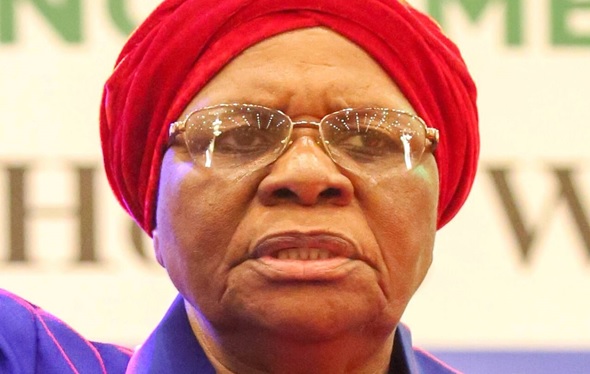MONROVIA, LIBERIA – An investigation by Verity News has uncovered troubling practices by two major rice importers, Fouani Brothers Corporation and K & K Trading Corporation, at the Freeport of Monrovia. Leaked videos and photos reveal that hundreds of bags of contaminated rice are being re-bagged and sold on the local market, exposing citizens to severe health risks. The findings highlight the widespread presence of rotten rice in Monrovia’s markets, sold at meaningfully reduced is being “Banjo,” suggesting a hasty effort to clear warehouse stocks. According to sources, this rice—unfit for human consumption—is typically meant for animal feed. However, it is allegedly being repackaged and sold as edible, raising grave concerns about food safety in the country.
Sources familiar with the issue disclosed that the importers are allegedly engaging in a practice locally known as “banjo,” whereby rotten rice is sold at a reduced price to market vendors in an effort to quickly clear the warehouses. These vendors, in turn, sell the rice to consumers without any indication of its compromised quality. This unethical act raises substantial questions about the integrity of these companies and the weak enforcement mechanisms within Liberia’s Ministry of Commerce and Industry (MoCI).
Speaking to Verity News, anonymous sources within the import sector admitted that rotten rice is typically disposed of or allocated for animal feed in compliance with commerce regulations. However, the re-bagging of such rice for human consumption represents a blatant violation of safety standards. One source alleged that importers often bribe inspectors and port security to turn a blind eye to these practices, highlighting systemic corruption within Liberia’s commerce ecosystem.
The leaked videos and photos, some of which have been shared on Verity News’ platforms, have sparked outrage among the public. Citizens have expressed concerns over the recurring prevalence of expired and contaminated goods in Liberia’s markets. These revelations also cast a shadow on the commerce inspectorate, which has been criticized for its inability to effectively monitor and regulate the quality of goods entering and circulating in the Liberian market.
Rice, being the staple food of Liberia, is a critical commodity for millions of citizens. The ongoing controversy, therefore, underscores the need for stringent oversight and enforcement to prevent the sale of substandard products. Health experts have warned of the dire consequences of consuming contaminated rice, which can lead to severe health issues, including food poisoning and chronic illnesses.
In response to the growing public outcry, the Ministry of Commerce and Industry has announced an investigation into the matter. In a statement, the ministry acknowledged the gravity of the situation and assured citizens that it would take decisive action against any parties found culpable. The ministry’s inspectorate division has been tasked with conducting rigorous checks to identify and remove compromised products from the market.
Despite these assurances, critics have questioned the ministry’s capacity to address the issue comprehensively. Reports suggest that the ministry’s inspectorate is severely underfunded and understaffed, leaving room for lapses in enforcement. A staff member from the ministry, speaking anonymously, admitted that limited resources and logistical challenges often hinder the agency’s ability to carry out its mandate effectively.
President Joseph Boakai had earlier engaged rice importers to address the challenges of rising rice prices and shortages. At the time, the president rejected proposals for a price hike and established a special committee to investigate the country’s rice crisis. However, the revelations about contaminated rice now add another layer of complexity to Liberia’s ongoing struggles with rice supply and affordability.
Verity News’ investigation highlights a broader issue of governance and accountability in Liberia. The allegations against Fouani Brothers and K & K Trading Corporation underscore the urgent need for reform within the country’s trade and commerce systems. This includes not only stricter monitoring but also the prosecution of individuals and entities that compromise public health for profit.
The Ministry of Commerce, in its press release, reaffirmed its commitment to consumer safety and pledged to enhance its inspection regime. It also called on the public to report any instances of suspicious or expired goods in the market through designated hotlines. The ministry has promised that its findings will be shared transparently and that violators will face appropriate punitive measures.







